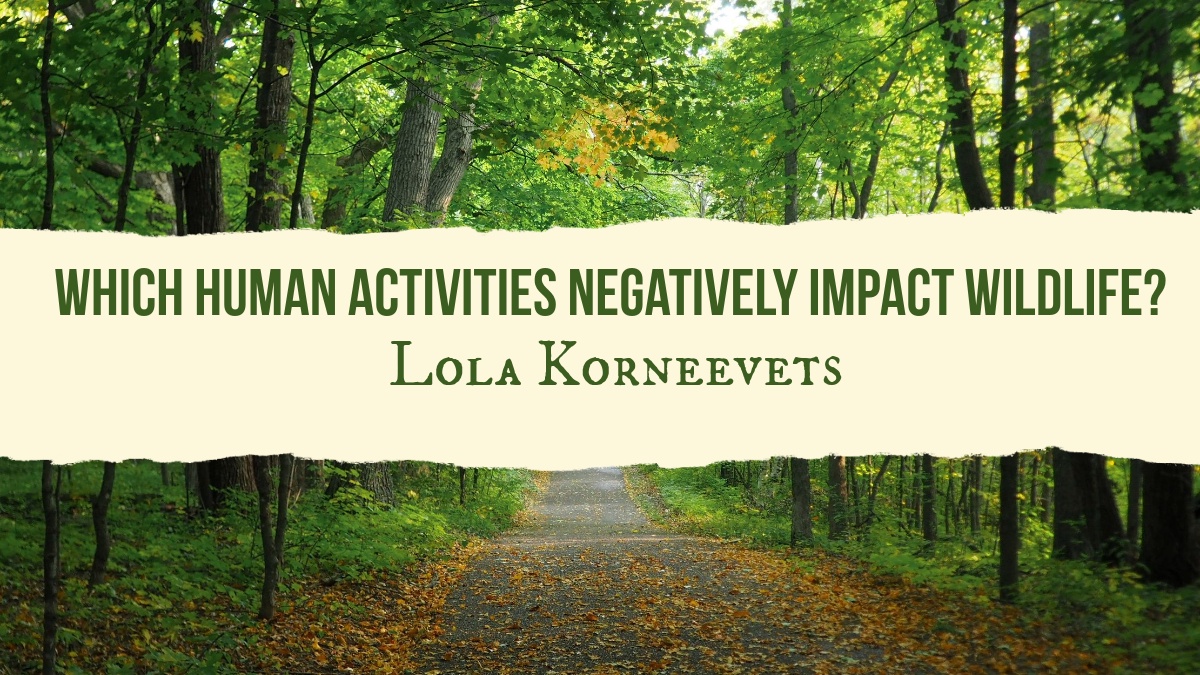Human activities have undeniably transformed the natural world, often adversely affecting wildlife populations and their habitats. As our global population continues to grow and our demands for resources increase, it is crucial to acknowledge and address the detrimental impacts that human activities can have on the fragile ecosystems that support countless species. In this article, Lola korneevets Explains some of the critical human activities that negatively impact wildlife and discuss their consequences.
Habitat Destruction
The degradation of wildlife habitat is one of the biggest risks to the species. Natural ecosystems including woods, marshes, and grasslands are transformed into agricultural land, urban regions, and industrial zones when human populations rise. This process displaces innumerable species, fragments habitats, and disturbs ecosystems. Deforestation has disastrous effects on wildlife since it destroys their homes, crucial ecological processes, and food systems.
Pollution
Human-generated pollution, including air, water, and soil pollution, has far-reaching consequences for wildlife. Industrial activities, vehicle emissions, and improper waste disposal introduce toxic substances into the environment, leading to ecosystem contamination. These pollutants can accumulate in the tissues of animals, causing reproductive problems, genetic mutations, and overall population decline. Water pollution from agricultural runoff and industrial waste can also devastate aquatic ecosystems, leading to fish kills and loss of biodiversity.
Overexploitation and Illegal Wildlife Trade
Human activities such as overhunting, overfishing, and illegal wildlife trade threaten many species. Poaching for fur, ivory, horns, and other animal products drives several iconic species, such as elephants, rhinos, and tigers, to the brink of extinction. Overfishing depletes fish stocks and disrupts marine ecosystems, affecting the targeted species and dependent predators and prey.
Climate Change
Human-induced climate change poses a significant threat to wildlife worldwide. Rising temperatures, altered precipitation patterns, and extreme weather events disrupt ecosystems, affecting species distribution, migration patterns, reproduction, and food availability. Coral bleaching, caused by warmer ocean temperatures, is devastating marine biodiversity while melting ice caps threaten the survival of polar bear populations. Climate change exacerbates existing pressures on wildlife and creates new challenges for their long-term survival.
Invasive Species
The introduction of non-native species into ecosystems can have disastrous consequences for native wildlife. Invasive species often outcompete or prey upon native species, leading to population declines and even extinctions. These introductions can occur through accidental releases or deliberate actions, such as the pet trade. For example, the introduction of the Burmese python in the Florida Everglades has had a devastating impact on native bird and mammal populations.
Conclusion
Human activities undeniably and often harm wildlife populations and their habitats. Habitat destruction, pollution, overexploitation, climate change, and the introduction of invasive species all contribute to the loss of biodiversity and pose significant challenges to wildlife conservation. Recognizing the negative consequences of these activities is the first step toward implementing effective conservation measures. We must find sustainable solutions to minimize our ecological footprint and protect the natural world for future generations, ensuring a harmonious coexistence between humans and wildlife.


No comments yet